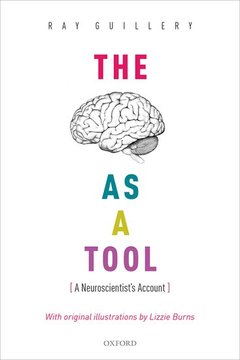Description
The Brain as a Tool
A Neuroscientist's Account
Author: Guillery Ray
Language: English
Subjects for The Brain as a Tool:
Publication date: 09-2017
282 p. · 16.8x24 cm · Hardback
282 p. · 16.8x24 cm · Hardback
Description
/li>Biography
/li>
There are two distinct views about the functions of our brains and their origins. The standard view, taught in most neuroscience texts, has incoming messages about the world sent to the cerebral cortex, with the cortex then producing an appropriate motor output. The interactive view, largely expressed by philosophers and psychologists, stresses the continuous sensorimotor interactions of the brain with the world. The Brain as a Tool focuses on thalamo-cortical interactions on the basis of the interactive view, exploring the phylogenetically new transthalamic corticocortical pathways of mammals that link a hierarchy of cortical areas to each other and back to the phylogenetically older motor centres for control of action. The book demonstrates how messages in these pathways produce an anticipation of our own actions and perceptions. In relating neural events to conscious processing and our sense of self , Guillery summarizes important evidence which links neuroscience with psychology and philosophy. This book is essential reading for neuroscientists, cognitive psychologists and philosophers. Supplemented with a helpful glossary of neural terms and numerous illustrations of the brain, it is also an important resource for graduate and postdoctoral students interested in the neural bases of a sense of self and of cognitive functions.
Ray Guillery (1929-2017). Born in Germany, he became a neuroanatomist and obtained his BSc and PhD in Anatomy from University College London in 1951 and 1954. In his long and distinguished career, Ray taught at University College London (1953-64), University of Wisconsin-Madison (1964-77; 1996-2006), University of Chicago (1977-1984), University of Oxford (1984-96) and Marmara University (2006-2010). He was a Fellow of the Royal Society, a Fellow of University College London and was the founding Editor-in-Chief of the European Journal of Neuroscience. In his final position, Ray was an Honorary Emeritus Research Fellow at the MRC Brain Network Dynamics Unit at the University of Oxford.
© 2024 LAVOISIER S.A.S.




